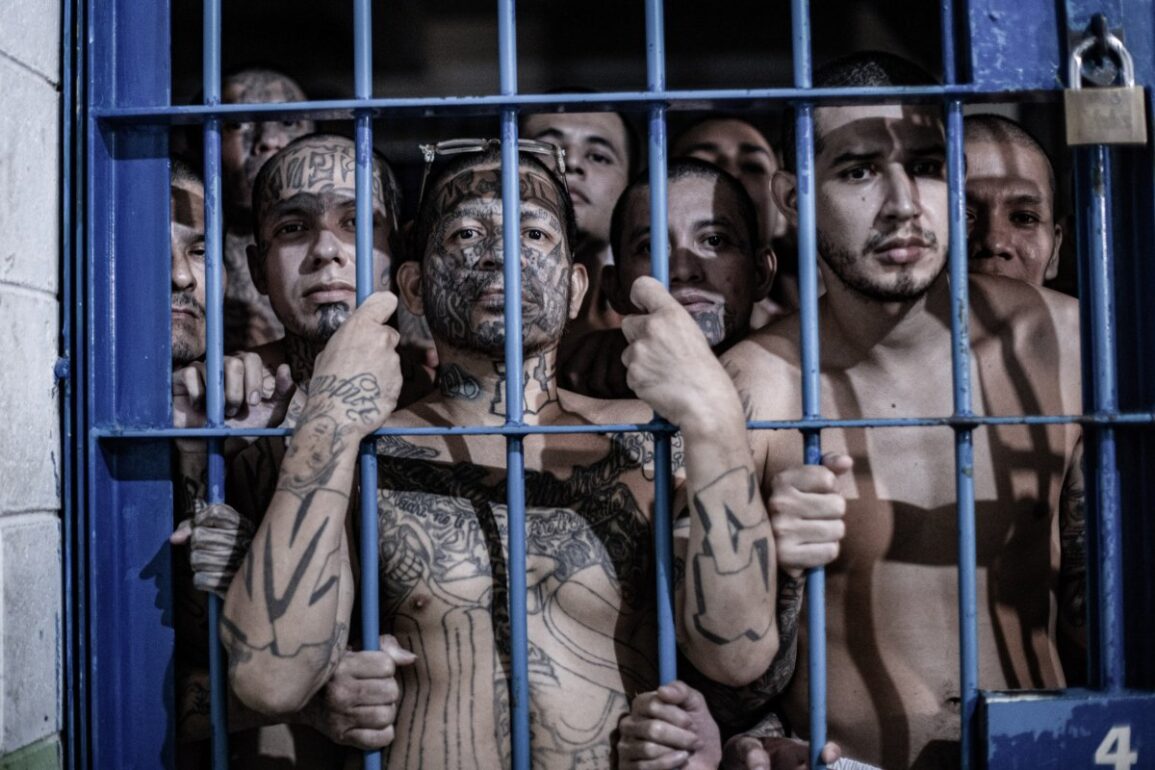Secretary of State Marco Rubio left El Salvador on Tuesday with an agreement in hand from that country’s president to accept deportees from the U.S. of any nationality — even American citizens — offering to hold them in the country’s sprawling maximum-security facility known as CECOT, or the Terrorism Confinement Center.
El Salvador President Nayib Bukele “has agreed to the most unprecedented, extraordinary, extraordinary migratory agreement anywhere in the world,” Rubio said after meeting with Bukele at his lakeside country house outside San Salvador for several hours late Monday.
“No country’s ever made an offer of friendship such as this,” he added.
Why It Matters
El Salvador, until recently one of the most dangerous countries in the world, closed last year with a record low 114 homicides, a newfound security that has propelled Bukele’s soaring popularity in the small Central American country of about six million people.
Undeterred by international criticism, Bukele has framed his crime policies as a model for other nations battling gang violence. El Salvador has been under a state of emergency since March 2022, following a deadly rampage by powerful street gangs.
In response, Bukele suspended fundamental rights, including access to legal counsel, and authorities have arrested more than 83,000 people with little to no due process, according to human rights organizations.
What To Know
The CECOT prison has been central to Bukele’s aggressive crackdown on gang violence since he took office in 2019. The prison, designed to hold up to 40,000 inmates, many of whom are mass murderers, drug traffickers, and members of notorious gangs like MS-13 and Barrio 18, has become a symbol of Bukele’s hardline approach.
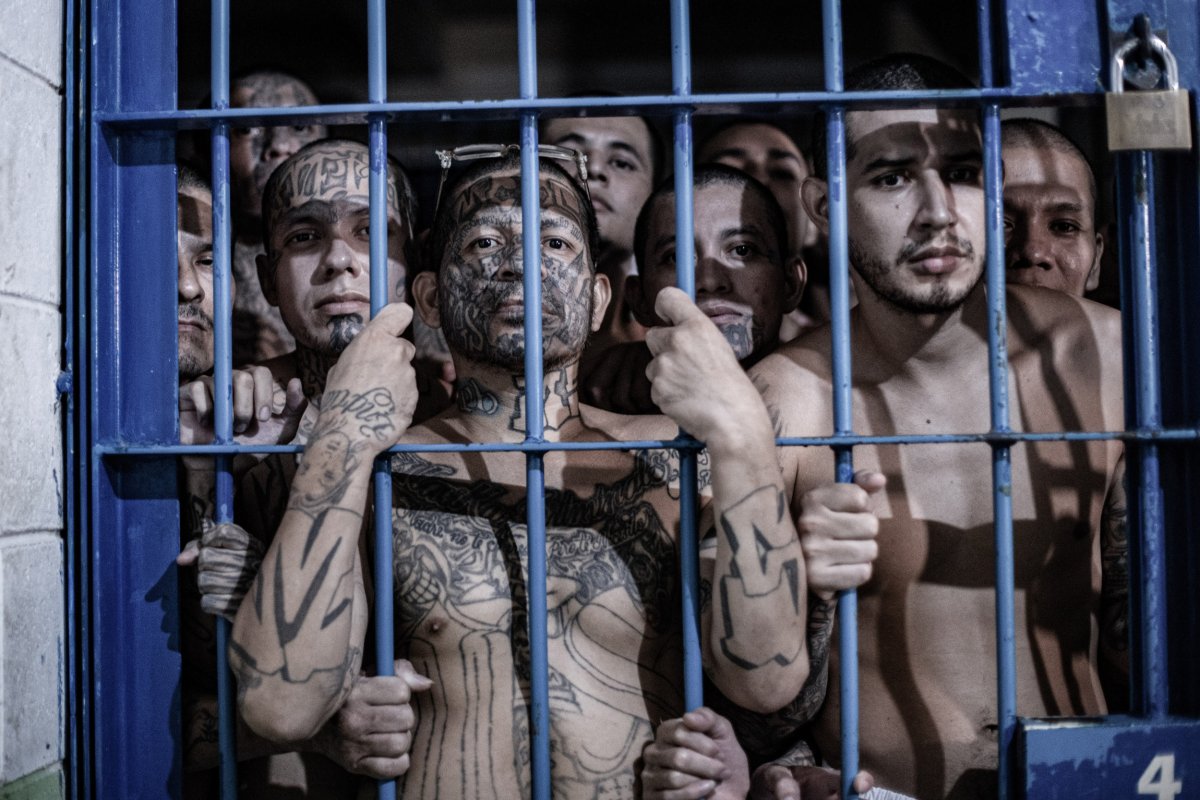
In this handout picture provided by the Salvadoran presidency inmates observe from a cell inside the mega- prison Terrorist Confinement Centre (CECOT) on June 11, 2024 in Tecoluca, El Salvador. Since president Bukele announced a state of exception in March 2022, over 80,000 suspected gang members have been arrested.
Getty Images
“We are willing to take in only convicted criminals (including convicted U.S. citizens) into our mega-prison in exchange for a fee,” Bukele confirmed on social media. He noted that while the cost to the U.S. would be minimal, the revenue would significantly bolster El Salvador’s prison system, making it financially self-sustaining.
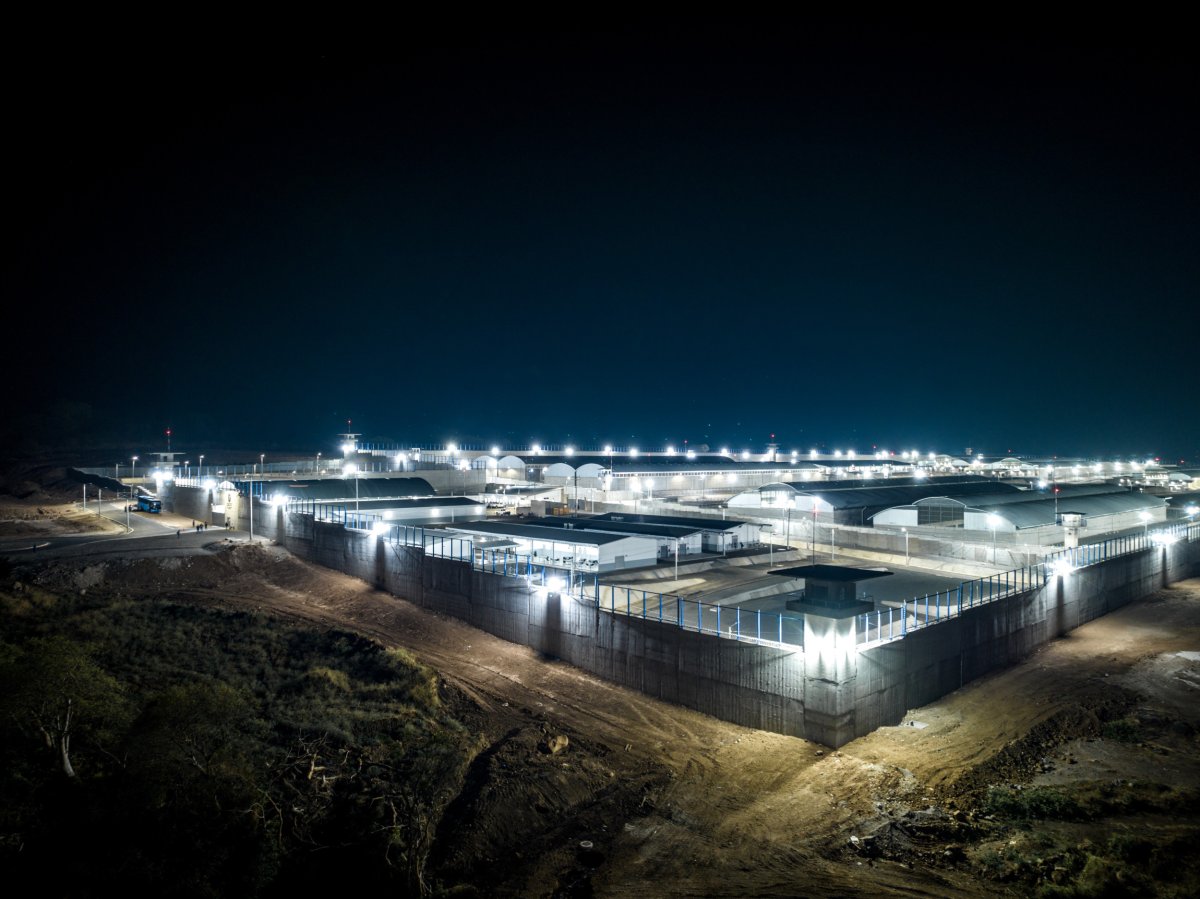



Aerial view of mega- prison Terrorist Confinement Centre (CECOT)on March 15, 2023 in Tecoluca, El Salvador. Since president Bukele announced a state of exception in March 2022, over 62,000 suspected gang members have been arrested.
Getty Images
Located in Tecoluca, an hour drive from San Salvador, the sprawling complex opened in January 2023 and was built in just seven months. The prison’s design and operations reflect an uncompromising philosophy toward incarceration, with inmates confined in large, windowless cages with minimal furnishings—just tiered metal bunks, an open toilet, and a cement basin.
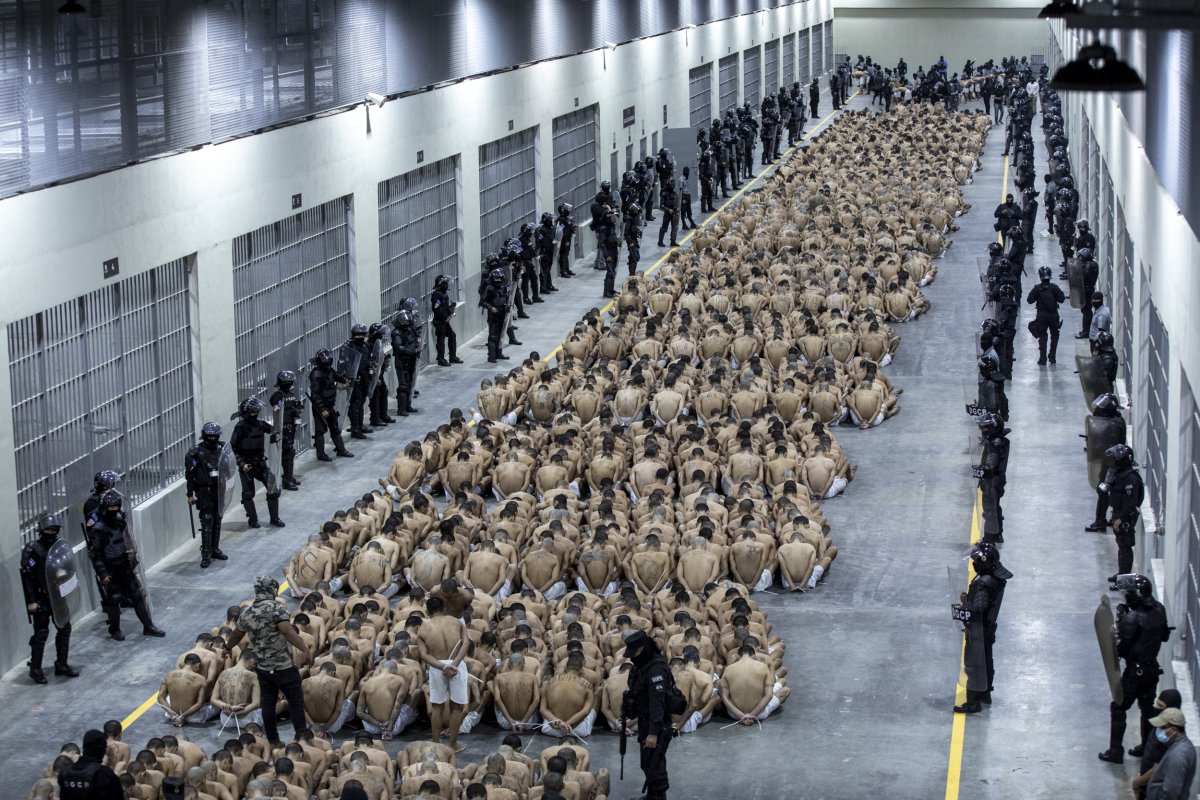



A group of 2,000 detainees are moved to the mega-prison Terrorist Confinement Centre (CECOT)on March 15, 2023 in Tecoluca, El Salvador.
Getty Images
Personal items, books, or even letters from family are banned. Prisoners spend 23.5 hours a day locked in their cells, with a brief, daily 30-minute window for exercise or religious activities in a central hallway. Meals are basic, consisting mainly of beans, rice, and plantains, with no meat served.
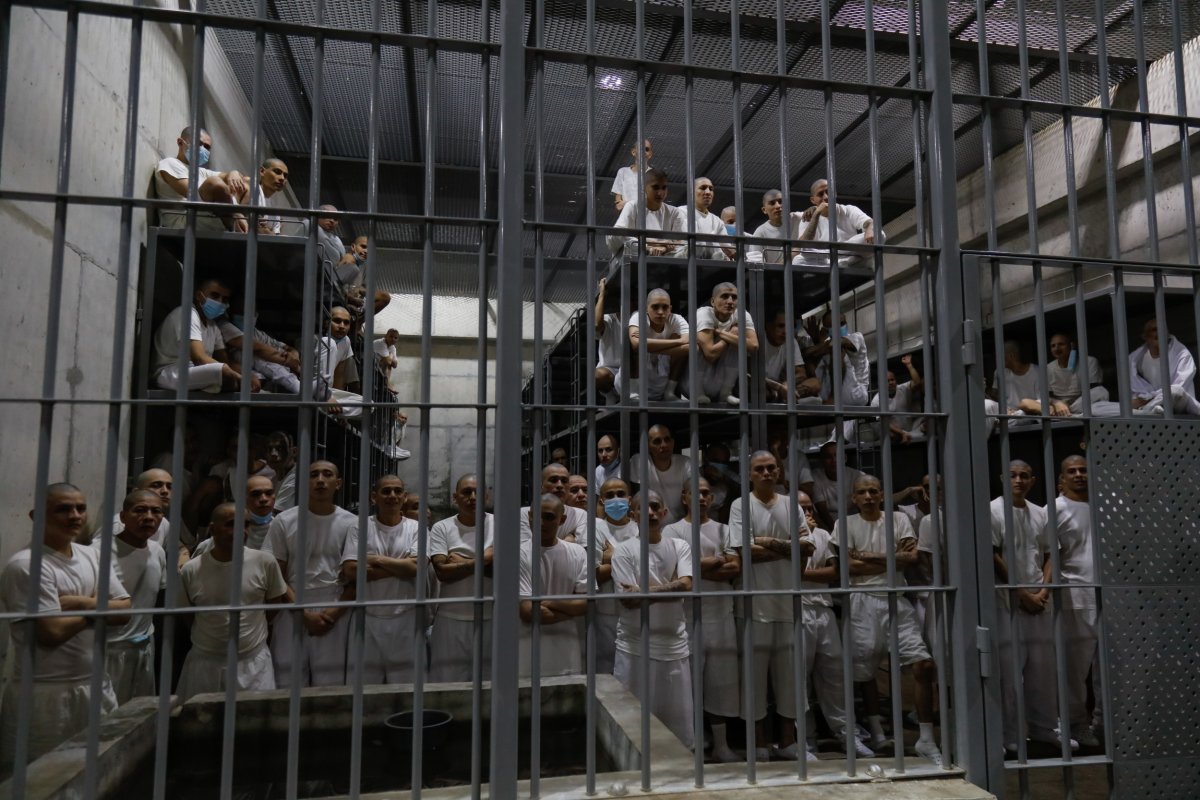



Inmates are seen in cells at CECOT in Tecoluca on February 6, 2024 in San Vicente, El Salvador. On February of 2023 El Salvador inaugurated Latin America’s largest prison as part of President Nayib Bukele’s plan to fight gangs.
Getty Images
Security at CECOT is designed to make the complex unescapable. The facility is surrounded by electrified fences, 19 watchtowers, and patrolled by 1,000 armed guards, police, and soldiers. Inside, armed guards maintain constant surveillance, and the lights stay on 24/7. Solitary confinement is used as punishment for inmates who commit offenses within the prison, with isolation cells designed to be completely dark except for a small shaft of light from a ceiling hole.
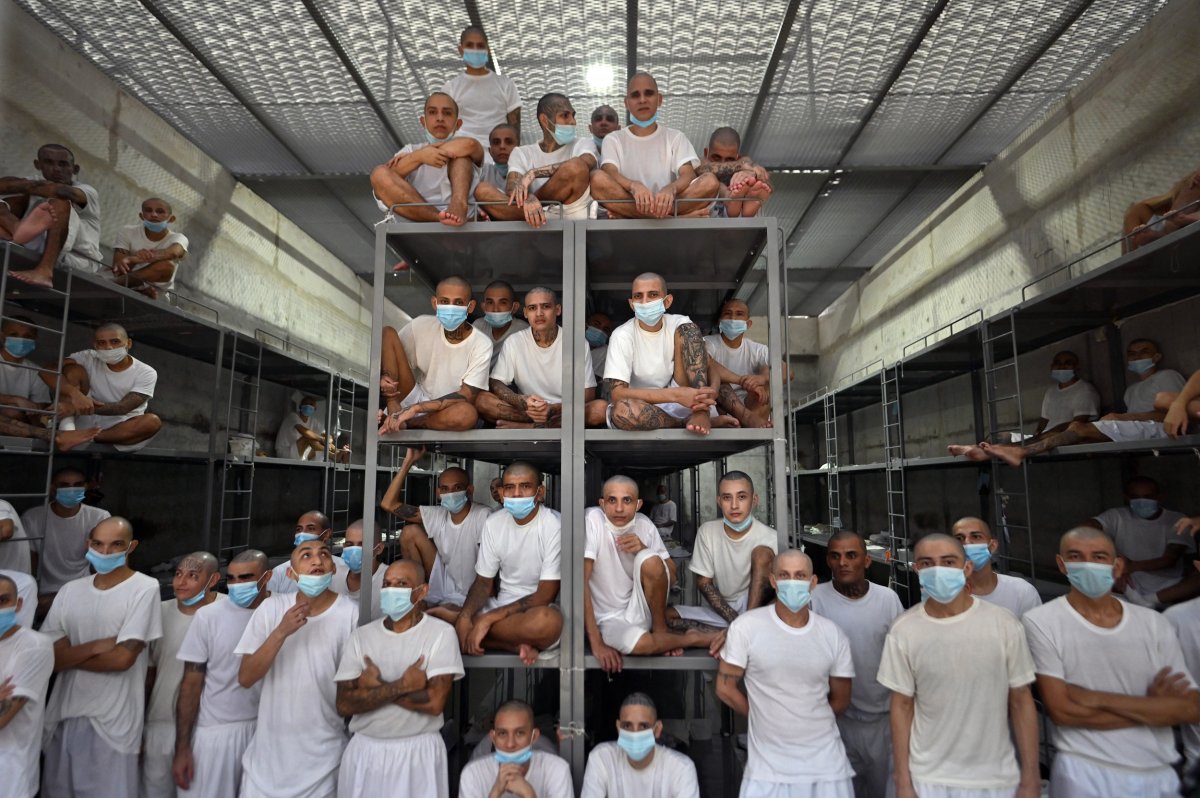



Inmates remain in a cell at the Counter-Terrorism Confinement Centre (CECOT) mega-prison, where hundreds of members of the MS-13 and 18 Street gangs are being held.
Getty Images
Human Rights Concerns
Despite Bukele’s successes in controlling crime, Amnesty International has condemned what it calls the “gradual replacement of gang violence with state violence” in El Salvador.
The Inter-American Commission on Human Rights has also called for an end to the more than two-year state of emergency, which has suspended fundamental civil rights as the government targets the country’s powerful street gangs.
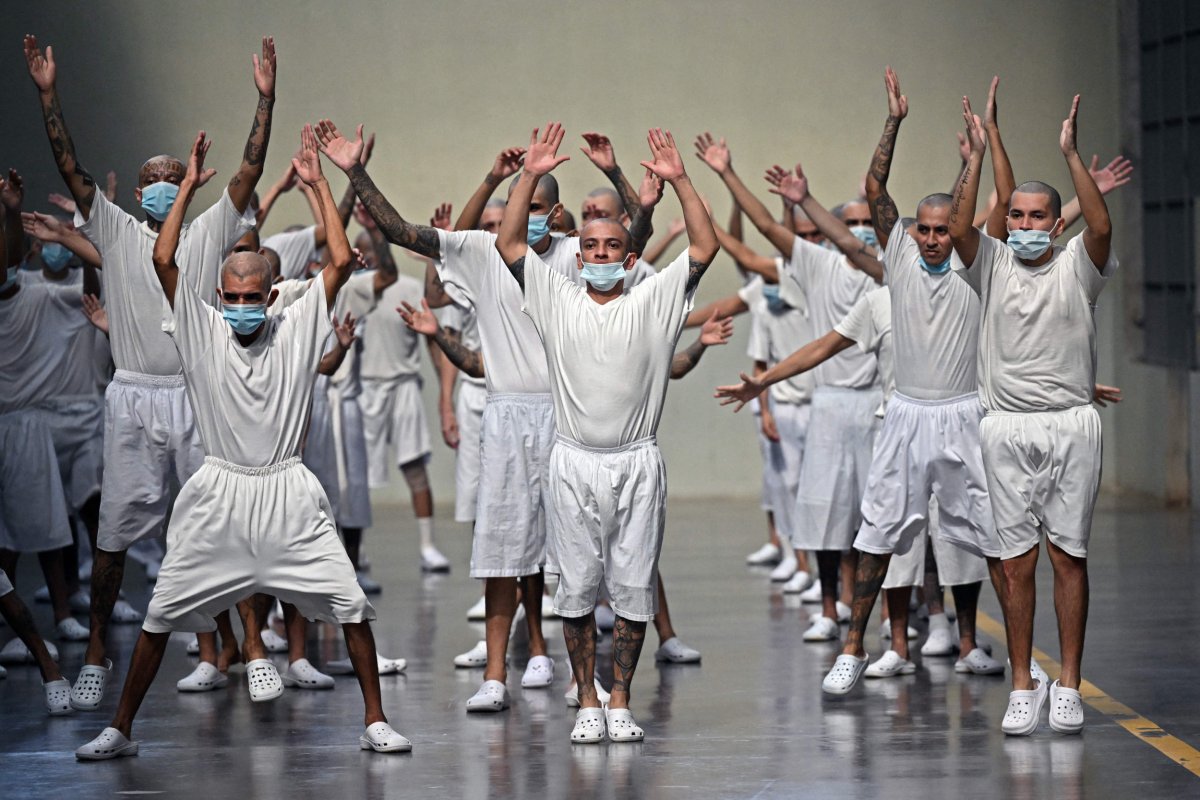



Inmates exercise at the Counter-Terrorism Confinement Centre (CECOT) mega-prison, where hundreds of members of the MS-13 and 18 Street gangs are being held.
Getty Images
The commission cited arbitrary arrests, lack of evidence against detainees, mass hearings and limited access to defense lawyers as key concerns. Other humanitarian organizations have highlighted the growing number of deaths among suspects held in prison awaiting trial.
Bukele, for his part, has dismissed these criticisms, crediting his hardline approach to crime for his popularity and re-election last February with over 84 percent of the vote. He has defended the ongoing state of emergency, stating that while security gains could be maintained without it, more gang members needed to be arrested to prevent them from regrouping.
Can US Citizens Be Incarcerated Abroad?
The current precedent for U.S. citizens being incarcerated abroad is predicated on whether they have committed crimes abroad or are under extradition requests.
The U.S. Department of State tells Americans: “Understand that you are subject to the local laws and regulations while visiting or living in the country—follow them.”
“One of the highest priorities of the Department of State and U.S. embassies and consulates abroad is to provide assistance to U.S. citizens incarcerated abroad,” the department says on its website, where it lists the services it provides to detained U.S. citizens.
These include visiting detainees regularly, providing a list of local attorneys who speak English, contacting the friends and family of the detained person and providing a general overview of the local criminal justice system.
Should Americans be forcibly transferred to foreign jails it would likely ignite a major constitutional challenge, which could include using the basis of the Fourteenth Amendment, which prevents states from engaging in arbitrary or unfair transfers, and the Sixth Amendment, which codifies the right to counsel and access to courts.
What People Are Saying
U.S. Secretary of State Marco Rubio on a press conference in San Salvador: “Any unlawful immigrant, illegal immigrant in the United States who’s a dangerous criminal – MS-13, Tren de Aragua, whatever it may be – he has offered his jails so we can send them here and he will put them in his jails”.
El Salvador President Nayib Bukele on a post on X (formerly Twitter): “We are willing to take in only convicted criminals (including convicted U.S. citizens) into our mega-prison (CECOT) in exchange for a fee. The fee would be relatively low for the U.S. but significant for us, making our entire prison system sustainable.”
Manuel Flores, secretary general of El Salvador leftist opposition party Farabundo Martí National Liberation Front, criticized the plan: “We also have many violent criminals in our country, however, that did not necessarily come here illegally but have been arrested 30 times, 35 times, 41, 42 times … for murder [and] other heinous charges. I don’t want these violent repeat offenders in our country any more than I want illegal aliens from other countries in.”
What Happens Next
El Salvador previously signed a similar deal in 2019 to receive non-Salvadorans detained in the U.S., but it was never implemented due to the COVID-19 pandemic. On Monday, Bukele referenced that agreement, stating his new proposal is “more important and of a much broader scope than the agreements made in 2019.”
This post was originally published on this site be sure to check out more of their content.




